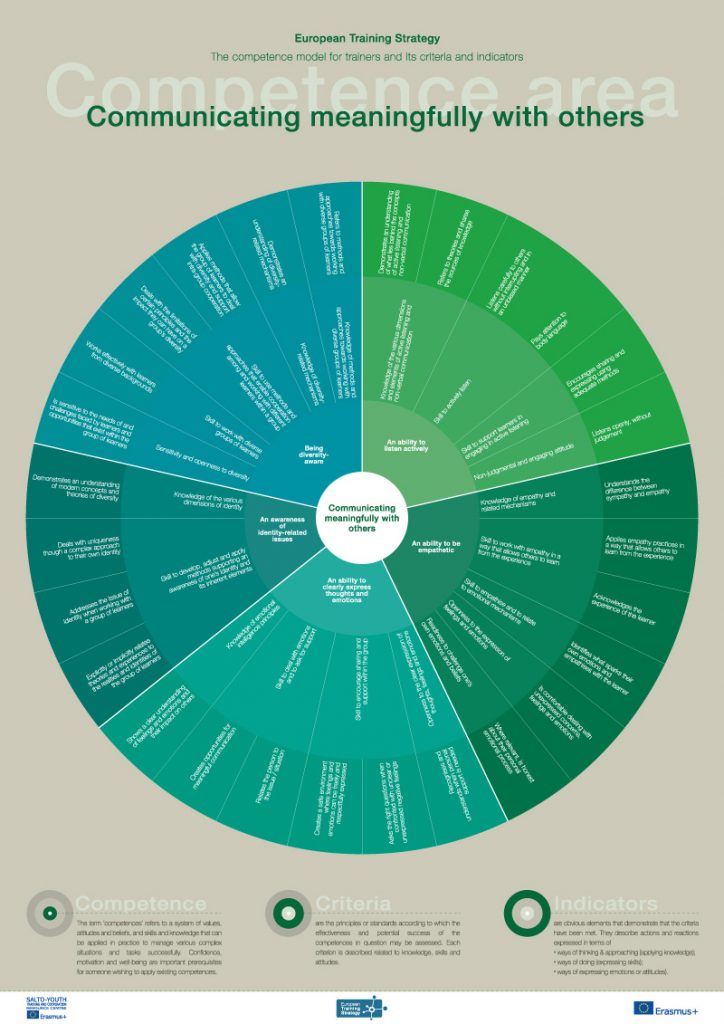Communicating meaningfully with others
1. An ability to listen actively
1.1. Knowledge of the various dimensions and elements of active listening and non-verbal communication
1.1.2. Refers to theories and shares the sources of knowledge
1.2.1. Listens carefully to others without interrupting and in an unbiased manner
1.2.2. Pays attention to body language
1.3. Skill to support learners in engaging in active listening
1.3.1. Encourages sharing and expressing using adequate methods
1.4. Non-judgmental and engaging attitude
1.4.1. Listens openly, without judgement
2. An ability to be empathetic
2.1. Knowledge of empathy and related mechanisms
2.1.1. Understands the difference between sympathy and empathy
2.2. Skill to work with empathy in a way that allows others to learn from the experience
2.2.1. Applies empathy practices in a way that allows others to learn from the experience
2.2.2. Acknowledges the experience of the learner
2.3. Skill to empathise and to relate to emotional mechanisms
2.4. Openness to the expression of feelings and emotions
2.4.1. Is comfortable dealing with unexpressed concerns, feelings and emotions
2.5. Readiness to challenge one’s own emotions and beliefs
2.5.1. Where relevant, is hones about their persona emotional process
3. An ability to clearly express thoughts and emotions
3.1. Openness to the clear expression of thoughts, feelings and emotions
3.1.1. Recognises and understands when personal support is needed
3.2. Skill to encourage sharing and support within the group
3.2.1. Asks the right questions when confronted with unclear or unexpressed negative feelings
3.2.2. Creates a safe environment where feelings and emotions can be freely and respectfully expressed
3.3. Skill to deal with emotions and ask for support
3.3.1. Relates the person to the issue/situation
3.3.2. Creates opportunities for meaningful communication
3.4. Knowledge of emotional intelligence principles
3.4.1. Shows a clear understanding of feelings and emotions and their impact on others
4. An awareness of identity-related issues
4.1.2. Addresses the issue of identity when working with a group of learners
4.1.3. Deals with uniqueness through a complex approach to their own identity
4.2. Knowledge of the various dimensions of identity
4.2.1. Demonstrates and understanding of modern concepts and theories of diversity
5.1. Sensitivity and openness to diversity
5.1.1. Is sensitive to the needs of and challenges faced by learners and opportunities that exist within the group of learners
5.2. Skill to work with diverse groups of learners
5.2.1. Works effectively with learners from diverse backgrounds
5.3.1. Deals with the limitations of certain principles and the impact they can have on a group’s diversity
5.4.1. Demonstrates an understanding of diversity-related mechanisms
5.5. Knowledge of methods and approaches towards working with diverse groups of learners
5.5.1. Refers to methods and approaches towards working with diverse groups of learners
